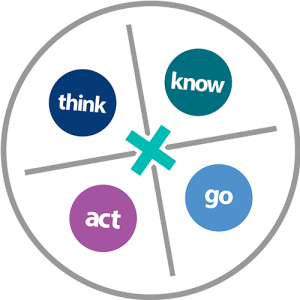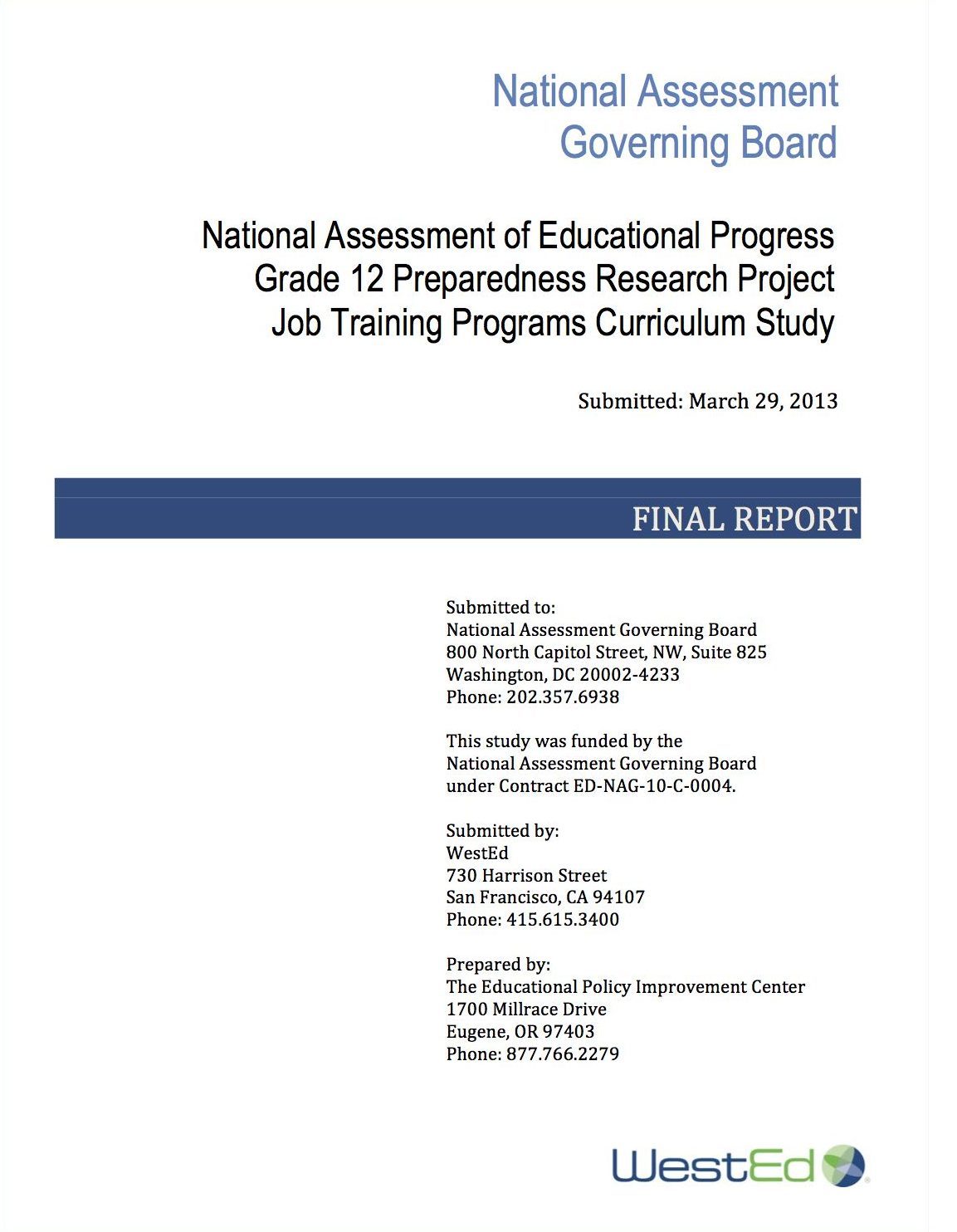This report describes the Job Training Programs Curriculum Study (JTPCS), which was commissioned by the National Assessment Governing Board (Governing Board) to analyze the content of course materials from five job-training occupational areas and is part of a larger program of preparedness research projects that are being conducted for the Governing Board.
This study was designed to identify the knowledge, skills, and abilities (KSAs) that are prerequisite to and taught in entry-level job-training programs; to describe the KSAs expected at the conclusion of job-training programs; and to compare the prerequisite KSAs identified through analysis of job-training course materials to those identified as part of a judgmental standard setting process (WestEd & Measured Progress, 2011; Measured Progress & WestEd, 2012).
Job_Training_Programs_Curriculum_Study_2013.pdf (1627 downloads )Artifacts from such courses included syllabi, assignments, examinations, reading/textbook passages, and textbook tables of contents. Teams of mathematics and reading content-area experts and occupational course instructors employed a convergent consensus model to analyze the artifacts in order to identify the minimal knowledge and skills required of students entering the courses. The KSAs identified were analyzed for job-training programs within five occupational areas. These areas are: Automotive Master Technician; Computer Support Specialist; Heating, Ventilation, and Air Conditioning (HVAC); Licensed Practical and Licensed Vocational Nurse (LPN), and Pharmacy Technician (entry and concluding course level). Reviewers completed artifact analyses independently, and then were brought together in small groups to discuss the codings where they disagreed in order to resolve differences and reach consensus on the KSAs that are prerequisite for each of the job-training programs.
The comprehensive mathematics and reading frameworks provided by the National Assessment of Educational Progress (NAEP) outline the structure for defining the KSAs. However, because the goal of the study was to identify all KSAs required of students entering job-training programs, the analysis was not limited to the NAEP objectives; reviewers also recorded non-NAEP KSAs and identified parts of the existing NAEP frameworks that did not apply. This more inclusive process meets an important goal of the study: to develop rich text descriptions of what students need to know and be able to do overall, based on the evidence from course materials. After these group results were summarized across courses within programs, teams of NAEP framework experts compared them to the NAEP items that are associated with the borderline performance descriptions (BPDs) and cut scores from the Judgmental Standard Setting (JSS) study.
This study addresses the following research questions:
- What mathematics and reading KSAs are prerequisite to the entry-level courses for the job-training programs in each occupation, and what mathematics and reading KSAs are taught in these entry-level courses?
- What mathematics and reading KSAs are students expected to have attained at the conclusion of the job-training programs in each occupation?
- How do the prerequisites for job-training programs (KSA expectations for entry) in each occupation relate to descriptions of minimal academic preparedness on NAEP (as described by the BPDs from the JSS studies)?
- How do the prerequisites for job-training programs (KSA expectations for entry) in each occupation relate to the content assessed by NAEP (as determined by NAEP items representing minimal academic preparedness)?
Studies were conducted by the Educational Policy Improvement Center (EPIC), as subcontractors to WestEd and under the guidance of the Governing Board.




